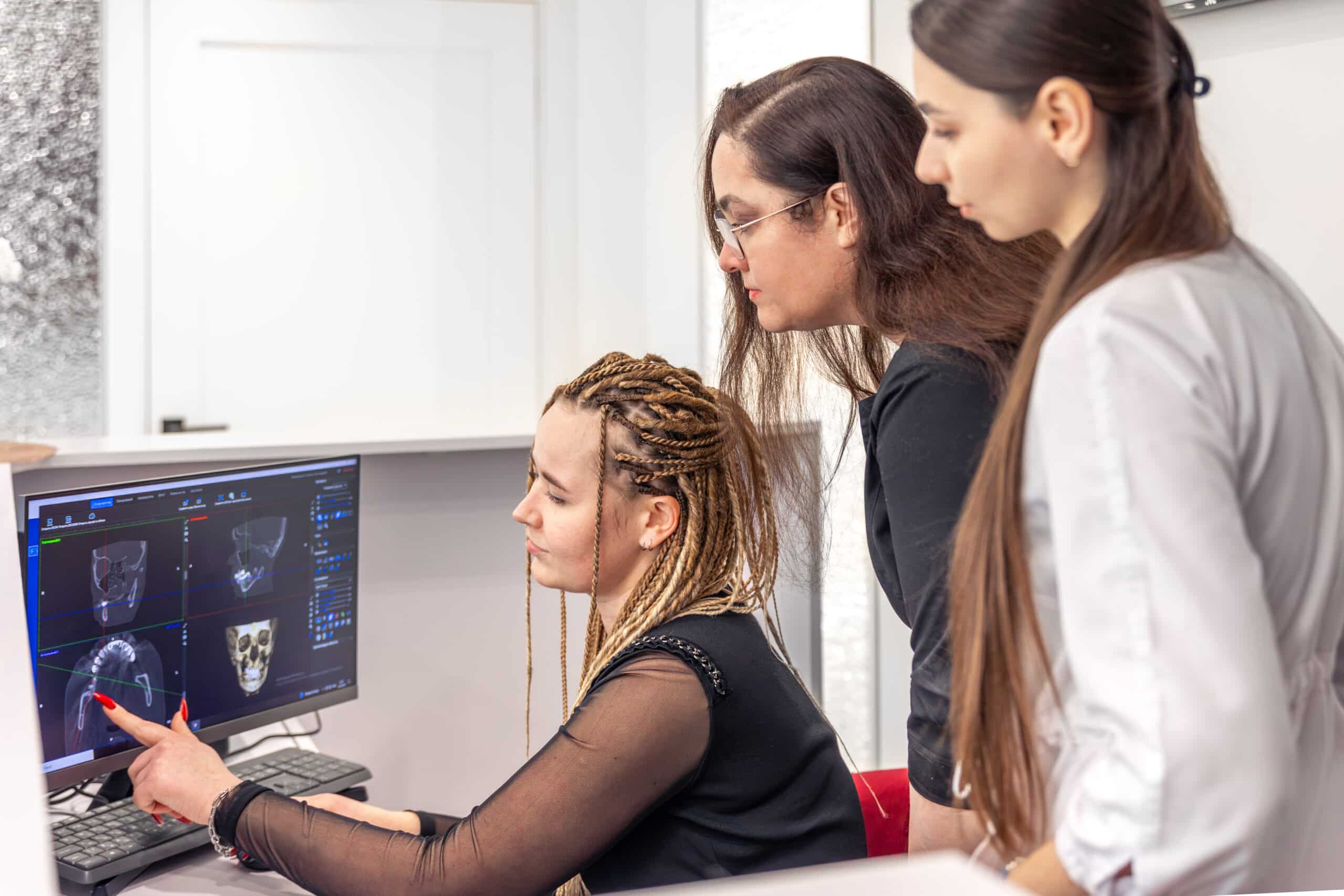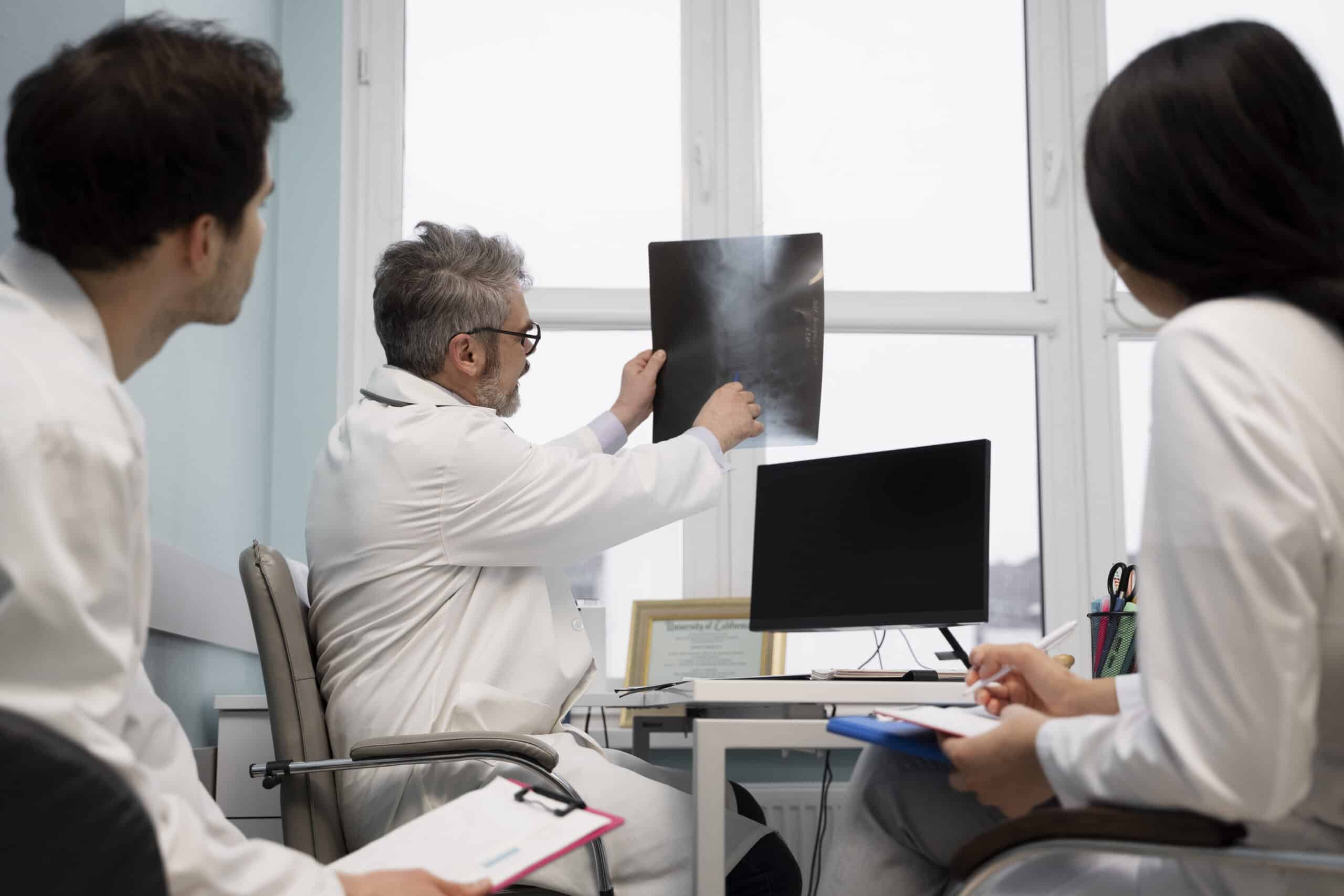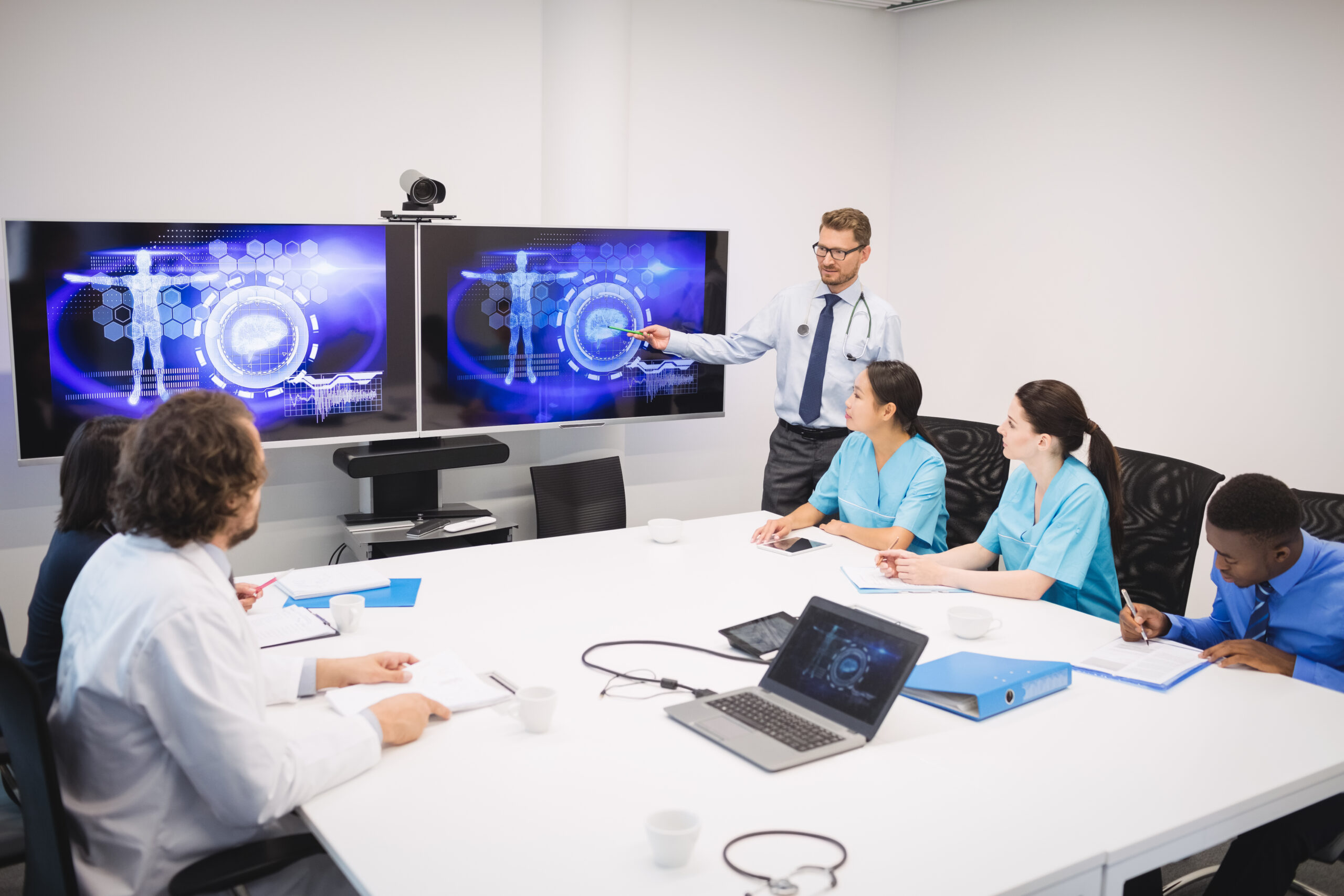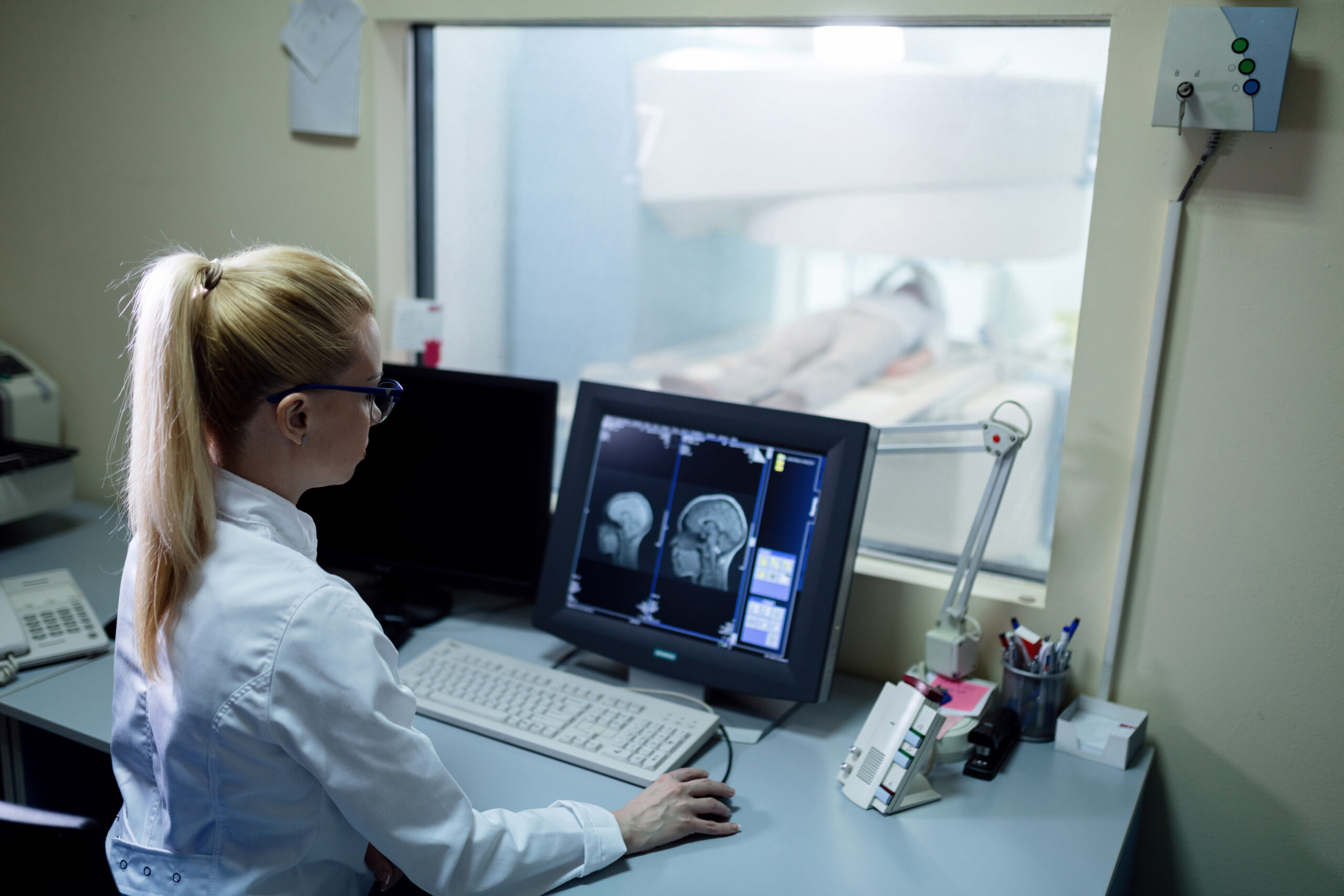Looking to pursue a rewarding career in healthcare? Radiologic technology schools in Los Angeles offer an excellent opportunity to gain the skills and knowledge needed to excel in this rapidly growing field. As a radiologic technologist, you’ll play a vital role in diagnosing and treating patients through advanced imaging technology.
With a range of accredited programs available in Los Angeles, aspiring professionals can receive hands on training, expert instruction, and a pathway to a fulfilling career in medical imaging. Whether you’re just starting your journey or looking to advance your skills, exploring radiologic technology schools in Los Angeles could be your first step toward a brighter future.
Why Choose Radiologic Technology Schools in Los Angeles?
Radiologic technology schools in Los Angeles are known for their diverse curriculum, hands on learning, and high-quality facilities. Located in one of the largest and most vibrant cities in the U.S., these schools offer students an opportunity to learn in an area with a high demand for healthcare professionals.
The competitive job market, paired with the city’s reputation for medical advancements, makes Los Angeles an ideal location for pursuing a career in radiology. These schools prepare students for a wide range of imaging specialties, such as X ray, MRI, ultrasound, and CT scans.
Accreditation and Quality Education
When searching for radiologic technology schools in Los Angeles, it’s crucial to look for accredited programs that meet the high standards of the American Registry of Radiologic Technologists (ARRT). Accreditation ensures that the program provides the necessary education and training to succeed in the field.
Accredited schools also increase the likelihood of passing certification exams and finding quality employment. Students who graduate from accredited radiologic technology schools in Los Angeles are highly sought after by healthcare providers for their comprehensive training and technical expertise.
Hands On Training and Real World Experience
One of the major benefits of attending radiologic technology schools in Los Angeles is the opportunity to gain practical, real world experience. Most programs offer clinical rotations, where students work in hospitals, clinics, and imaging centers under the supervision of experienced technologists.
This hands on experience not only enhances students’ technical skills but also helps them understand the nuances of patient care in medical settings. Students learn how to operate diagnostic equipment, assess images, and assist physicians in creating accurate diagnoses, giving them the confidence to handle complex medical imaging situations.
High Demand and Career Opportunities
Graduating from radiologic technology schools in Los Angeles opens the door to a wide range of career opportunities. As the healthcare industry continues to grow, so does the demand for skilled radiologic technologists.
Los Angeles, with its large medical community and numerous healthcare facilities, provides a wealth of job prospects in both traditional and specialized imaging fields. Whether you want to work in hospitals, outpatient clinics, or imaging centers, the skills you gain will make you highly competitive in the job market.
Flexible Learning Options
Many radiologic technology schools in Los Angeles offer flexible learning schedules, including part time programs and online courses. These options cater to students who may be working professionals, have family obligations, or are looking for a more adaptable approach to their education.
Whether you’re a full time student or balancing work and school, these flexible programs make it easier to earn your degree without sacrificing your personal commitments.
What is Radiologic Technology?
Definition and Scope of Radiologic Technology
Radiologic technology is a specialized field within healthcare that involves using advanced imaging techniques to visualize the interior of the body. This includes methods such as X-rays, CT scans, MRIs, and ultrasound.
These diagnostic tools are essential for detecting injuries, diseases, and abnormalities, helping healthcare providers make informed decisions regarding patient care and treatment plans.
Key Areas in Radiologic Technology
X-rays and CT Scans
X-rays are commonly used to examine bones and organs, providing crucial information about fractures, infections, and other conditions. CT scans, on the other hand, offer detailed, cross sectional images of the body, helping to diagnose complex medical conditions by revealing tissues, blood vessels, and organs.
MRI and Ultrasound
MRI technology uses powerful magnetic fields to capture high resolution images of soft tissues, offering detailed insights into conditions such as brain tumors, spinal cord issues, or joint problems.
Ultrasound, a non invasive imaging technique, helps healthcare professionals view internal organs, muscles, and tendons in real time, making it especially useful for monitoring pregnancies and detecting abdominal issues.
Importance in Healthcare
The Role of Radiologic Technologists in Healthcare
Radiologic technologists play a key role in supporting doctors by capturing detailed images of patient’s internal structures. These professionals work alongside physicians to ensure accurate diagnoses and assist in formulating treatment plans, significantly contributing to the overall healthcare process.
Advancements in Medical Imaging
Technological advancements in radiology, such as digital X-rays, 3D imaging, and AI enhanced diagnostics, have revolutionized patient care. These innovations enable more precise diagnostics, reduce radiation exposure, and lead to faster, more effective treatments, improving patient outcomes and reducing healthcare costs.
Training Opportunities in Radiologic Technology
If you’re interested in a career in radiologic technology, radiologic technology schools in Los Angeles provide specialized training programs. These programs offer hands on experience with the latest imaging equipment, preparing students for a successful career in medical imaging and patient care.
Why Choose Radiologic Technology Schools in Los Angeles?
Vibrant Medical Community
Los Angeles is a prominent hub for medical advancements, offering a dynamic healthcare environment. With numerous top tier hospitals, private practices, and imaging centers, the city provides radiologic technology students with a wealth of opportunities to learn and grow.
Being at the heart of medical innovation, radiologic technology schools in Los Angeles expose students to cutting edge practices and state of the art equipment, ensuring a comprehensive education.
Access to Quality Education
Los Angeles is home to some of the most renowned schools with accredited radiologic technology programs. These schools offer advanced training facilities and experienced faculty, helping students gain practical skills and knowledge.
Attending an accredited radiologic technology school in Los Angeles ensures that your education meets the highest standards, giving you the competitive edge needed in this rapidly evolving field.
Job Market and Career Prospects
With a large and growing population, Los Angeles has an increasing demand for skilled radiologic technologists. This demand translates into a wealth of employment opportunities in various medical settings, from hospitals and clinics to specialized imaging centers.
Graduates of radiologic technology schools in Los Angeles are well positioned to secure fulfilling careers due to the city’s thriving healthcare sector and commitment to providing high quality patient care.
Key Features of Radiologic Technology Schools in Los Angeles
Accreditation and Certification
When exploring radiologic technology schools in Los Angeles, accreditation plays a crucial role in ensuring the quality of education. It guarantees that the program meets national standards and prepares students for certification exams.
Choosing ARRT accredited schools is vital for those aiming to become certified radiologic technologists, as this accreditation directly impacts eligibility for certification and future career opportunities in the medical field.
Curriculum Overview
Radiologic technology schools in Los Angeles offer a comprehensive curriculum that includes courses in radiographic procedures, anatomy and physiology, patient care, and medical ethics. These programs are designed to provide students with both theoretical knowledge and practical skills.
Hands on training and clinical experience are integral components, allowing students to work directly in hospitals and medical centers, ensuring they are well prepared for the challenges of the healthcare environment.
Faculty and Teaching Methods
The faculty at radiologic technology schools in Los Angeles are highly qualified professionals with real world experience in the field. These instructors bring a wealth of knowledge and expertise to the classroom, providing students with practical insights into the profession.
The teaching methods are innovative, incorporating simulations, lab work, and case studies, which enhance student engagement and ensure effective learning.
Clinical Rotations and Hands on Experience
Clinical rotations are an essential part of radiologic technology programs, allowing students to gain invaluable hands on experience in real world healthcare settings. Los Angeles schools have strong partnerships with local hospitals and medical centers, providing students with the opportunity to work alongside experienced technologists and healthcare professionals.
These clinical placements ensure that students are fully prepared to tackle the demands of their future careers. By attending radiologic technology schools in Los Angeles, students gain access to accredited programs, experienced instructors, and critical hands on training, all of which are designed to set them up for success in this rewarding field.
Top Radiologic Technology Schools in Los Angeles
When it comes to pursuing a career in radiologic technology, choosing the right school can make a significant impact on your future. Los Angeles is home to some of the best radiologic technology schools, offering cutting edge programs and strong job placement rates. Let’s explore the top options for aspiring radiologic technologists in LA.
| School Name | Overview | Programs Offered | Accreditation & Faculty Expertise | Unique Features |
|---|---|---|---|---|
| University of Southern California (USC) | Prestigious school offering top healthcare programs in LA. | Associate’s degree, MRI, CT, and advanced imaging programs. | JRCERT accredited, expert faculty with diverse medical backgrounds. | Flexible learning options, state-of-the-art technology. |
| Los Angeles City College (LACC) | Accessible program for a wide range of students. | Associate’s degree, certification courses in radiology. | JRCERT accredited, experienced faculty. | Affordable, evening and online courses available. |
| East Los Angeles College (ELAC) | Affordable, robust program for aspiring radiologic technologists. | Associate’s degree, CT, MRI, and diagnostic imaging courses. | JRCERT accredited, experienced technologists and healthcare pros. | Clinical experience at renowned LA healthcare institutions. |
Financial Considerations and Financial Aid for Radiologic Technology Schools in Los Angeles
Tuition Fees and Costs at Radiologic Technology Schools in Los Angeles
Attending radiologic technology schools in Los Angeles comes with various financial aspects that prospective students must consider. The average tuition fees for these programs can vary, but students can expect to pay anywhere from $5,000 to $15,000 per year, depending on the institution.
In addition to tuition, students may face extra costs for textbooks, lab fees, and clinical placement expenses, which are often required for hands on training.
Financial Aid Options for Students at Radiologic Technology Schools in Los Angeles
When it comes to financial aid, there are several options available to students pursuing radiologic technology schools in Los Angeles. Scholarships and grants are commonly offered, and many students can qualify for federal and state financial assistance programs. Loan options, including federal student loans, are also available to help cover tuition and related expenses.
Work Study Programs and Payment Plans
Many schools provide work study programs, allowing students to work part time while attending classes. Additionally, some schools offer flexible payment plans, giving students the ability to pay tuition fees over time.
These financial aid options can significantly ease the financial burden on students, making it more affordable to pursue a career in radiologic technology. By understanding the costs and financial aid opportunities, students can better plan their education and focus on achieving success in the field of radiologic technology.
Career Opportunities for Radiologic Technologists in Los Angeles

The demand for radiologic technologists in Los Angeles is rising due to the city’s expanding healthcare sector. With healthcare providers constantly looking to fill these roles, the need for skilled professionals in diagnostic imaging is stronger than ever.
Radiologic technology schools in Los Angeles are becoming increasingly popular as they provide the necessary education and training for individuals to enter this rewarding field.
Job Demand and Salary Expectations
As Los Angeles’ population grows, the demand for radiologic technologists continues to climb. These healthcare professionals are crucial for operating imaging equipment, diagnosing diseases, and assisting doctors.
The salary for radiologic technologists in Los Angeles typically ranges from $60,000 to $90,000 annually, with the potential for higher pay with experience and specialization. Job growth in this field is expected to remain strong, offering long term career stability.
Specializations Within Radiologic Technology
Radiologic technologists in Los Angeles have several paths for specialization. These include areas such as MRI (Magnetic Resonance Imaging), CT scans (Computed Tomography), ultrasound, and radiation therapy. Each specialization presents unique career advancement opportunities, often leading to higher salaries and specialized roles in the healthcare system.
Continuing education is essential for career growth, and many radiologic technology schools in Los Angeles offer advanced certification programs to help professionals specialize and stay current with the latest advancements in technology.
Top Employers in Los Angeles
The top employers for radiologic technologists in Los Angeles are major hospitals, diagnostic imaging centers, and outpatient clinics. These institutions are constantly on the lookout for qualified professionals to enhance their imaging services.
Networking and professional development opportunities in Los Angeles are abundant, with local associations and conferences offering ways for technologists to expand their skill set, build relationships, and advance in their careers.
Los Angeles is one of the best places to launch a career in radiologic technology, with numerous opportunities for growth, competitive salaries, and the chance to work in specialized fields. For those interested in pursuing this career, enrolling in radiologic technology schools in Los Angeles is a crucial first step.
How to Choose the Right Radiologic Technology School in Los Angeles

Key Factors to Consider
When selecting a radiologic technology school in Los Angeles, several important factors should guide your decision making process.
Accreditation Status
Ensure the school has proper accreditation. This guarantees that the program meets industry standards and provides a quality education.
Curriculum and Clinical Rotation Opportunities
Look for a school offering a comprehensive curriculum that covers essential radiologic techniques and safety procedures. Clinical rotation opportunities provide vital hands on experience.
Job Placement Assistance and Faculty Qualifications
Investigate whether the school provides job placement assistance to help secure employment after graduation. Also, consider the qualifications of faculty—experienced instructors are essential for gaining valuable industry insights.
Visiting Schools and Attending Open Houses
The Importance of Campus Visits
Visiting campuses and attending open houses or information sessions is crucial. These events offer the chance to ask questions, meet faculty, and assess if the environment aligns with your needs.
Getting a Feel for the Environment
Experiencing the campus firsthand allows you to gauge the culture and determine whether it is the right fit for you.
Online and Hybrid Options
Flexibility of Online Programs
Many radiologic technology schools in Los Angeles offer online courses for students seeking more flexibility in their learning schedules.
Benefits and Challenges of Hybrid Programs
Hybrid programs combine online coursework with in person clinical rotations, offering a balance of flexibility and hands on experience but requiring students to manage both aspects efficiently.
FAQs:
Q1. What are radiologic technology schools in Los Angeles?
Radiologic technology schools in Los Angeles are accredited institutions that offer programs designed to train students in the use of diagnostic imaging equipment, such as X-rays, MRIs, CT scans, and ultrasound. These schools provide the necessary education and hands on experience for individuals aspiring to become radiologic technologists in healthcare settings.
Q2. What programs are offered at radiologic technology schools in Los Angeles?
Radiologic technology schools in Los Angeles typically offer associate’s and bachelor’s degree programs in radiologic technology. The curriculum includes courses in anatomy, physiology, radiographic techniques, patient care, and medical ethics. Some schools also offer specialized training in MRI, CT, and ultrasound technology.
Q3. How long does it take to complete a program at radiologic technology schools in Los Angeles?
The duration of a program at radiologic technology schools in Los Angeles can vary. An associate’s degree typically takes about two years to complete, while a bachelor’s degree may take four years. Some schools offer accelerated programs that allow students to finish their education in a shorter time frame, depending on the number of credits they take per semester.
Q4. What are the admission requirements for radiologic technology schools in Los Angeles?
To be admitted to radiologic technology schools in Los Angeles, applicants usually need a high school diploma or GED. Some schools may require specific coursework, such as mathematics, biology, or chemistry, as prerequisites. Additionally, students may need to submit letters of recommendation, and a personal statement, and pass an entrance exam.
Q5. Are radiologic technology schools in Los Angeles accredited?
Yes, many radiologic technology schools in Los Angeles are accredited by the Joint Review Committee on Education in Radiologic Technology (JRCERT). Accreditation ensures that the program meets national standards for education and prepares students for certification exams, such as those administered by the American Registry of Radiologic Technologists (ARRT).
Q6. How much do radiologic technology schools in Los Angeles cost?
The cost of attending radiologic technology schools in Los Angeles can vary depending on the institution. On average, tuition fees range from $5,000 to $20,000 per year for in state students. Additional costs may include books, lab fees, uniforms, and clinical placement fees. Financial aid options, such as scholarships, grants, and student loans, are often available.
Q7. What career opportunities are available after graduating from radiologic technology schools in Los Angeles?
Graduates of radiologic technology schools in Los Angeles can pursue various career opportunities in healthcare settings. These include positions as radiologic technologists, MRI technologists, CT technologists, and ultrasound technicians. Additionally, there are opportunities to specialize in radiation therapy, nuclear medicine, or medical imaging management.
Q8. Is there a high demand for radiologic technologists in Los Angeles?
Yes, there is a strong demand for radiologic technologists in Los Angeles due to the city’s large and growing healthcare industry. With numerous hospitals, clinics, and diagnostic imaging centers, Los Angeles offers ample job opportunities for trained professionals. The aging population and advances in medical imaging technology contribute to this demand.
Q9. Can I work while attending radiologic technology schools in Los Angeles?
Many radiologic technology schools in Los Angeles offer flexible schedules, including part time programs and evening classes, allowing students to work while attending school. Additionally, some schools may provide online or hybrid courses, making it easier for students to balance work and education. Clinical rotations, however, typically require a full time commitment.
Q10. How can I find the best radiologic technology schools in Los Angeles?
To find the best radiologic technology schools in Los Angeles, consider factors such as accreditation, faculty expertise, curriculum quality, and clinical placement opportunities. Research schools online, visit campuses, and talk to current students or alumni for recommendations. Additionally, ensure the school offers the specific radiologic specialization you are interested in, such as MRI or CT.
Conclusion:
radiologic technology schools in Los Angeles provide an excellent pathway for those looking to pursue a career in medical imaging. With top notch programs, hands on training, and access to a thriving healthcare community, these schools offer students the knowledge and skills needed to succeed in this growing field.
Whether you’re interested in X-ray, MRI, CT scans, or ultrasound technology, the opportunities for specialization and career advancement are abundant. By choosing one of the accredited radiologic technology schools in Los Angeles, you’ll be positioning yourself for a rewarding career with strong job prospects and the ability to make a significant impact in patient care.


